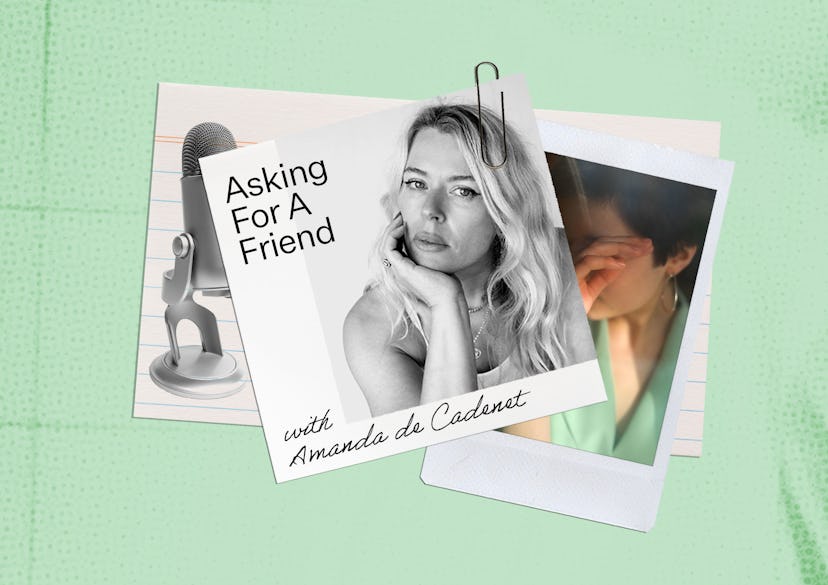Asking For A Friend
I Feel Guilty About My Grief. How Can I Cope?
I don't feel like I can talk about it anymore.

Q: I lost my mom two years ago, so it's coming up to the anniversary of her death. I'm still finding this whole grieving process to be really challenging.
I don't have my dad, he died 11 years ago, so I've just had this overwhelming feeling of being alone in the world without my parents.
I have good friends and a good job, but there's still this empty feeling and I don't know what to do with it. I thought grieving would be getting easier by now but, in some ways, I feel like it’s gotten harder.
I don't feel like you can talk about it anymore after two years, and I don't want to put people in that position because they often don't know what to say. How should I cope?
A: First and foremost, remember that grieving is a deeply personal process, and there's no “right” way to do it. There’s also no standard timeline for it. Allow yourself to feel whatever you're feeling, whether it's sadness, anger, confusion, or even relief. These emotions are all valid and part of the healing journey.
It's OK to still feel the impact of your loss, even two years later — even 10 or 20 years later. I am on the same timeline as you with the loss of my dad 18 months ago, and even today I had to remind myself that he isn’t here anymore.
This could be an invitation to connect more deeply with yourself.
You may think this is a cheesy idea, but have you ever considered joining a grief group? Sharing your feelings with others who have experienced similar losses can be incredibly healing. Hearing about their journeys reminds you that you are not alone. It could also be helpful to hear that other people still feel as you do, even after two years. There is no shame in it.
There are countless options, but here are a couple just for starters: The Dinner Party and Option B, both of which offer virtual chats with others who are grieving.
I will say that loneliness and feeling empty are two of the greatest pains, and it’s hard to know what to do about it. In my experience, it's an inside job — so outside factors like a career and your friends can’t fix that feeling long-term. If they did, you wouldn’t be experiencing this. That means this could be an invitation to connect more deeply with yourself.
If that sounds nebulous, it is. So what does it mean? Here are some suggestions: Try meditation. Spend time in nature. Listen to uplifting audio talks (like on the app Insight Timer). Read a book about a spiritual practice or from someone who has overcome hardship. Signs: The Secret Language of the Universe by Laura Lynne Jackson really helped me. The Beauty of What Remains by Rabbi Steve Leder is another good one.
Find out what inspires you and helps you to spend time connecting to yourself. This is the way I have navigated feeling empty. Personally, I turn to prayer and meditation, and I set aside time to walk with my dogs in nature.
Finally, I would like to remind you to be kind to yourself.
If you or someone you know is seeking help for mental health concerns, visit the National Alliance on Mental Illness (NAMI) website, or call 1-800-950-NAMI(6264). For confidential treatment referrals, visit the Substance Abuse and Mental Health Services Administration (SAMHSA) website, or call the National Helpline at 1-800-662-HELP(4357). In an emergency, contact the National Suicide Prevention Lifeline at 1-800-273-TALK(8255) or call 911.
If you have a question about sobriety, self-care, recovery, or wellness for Amanda, fill out this form.